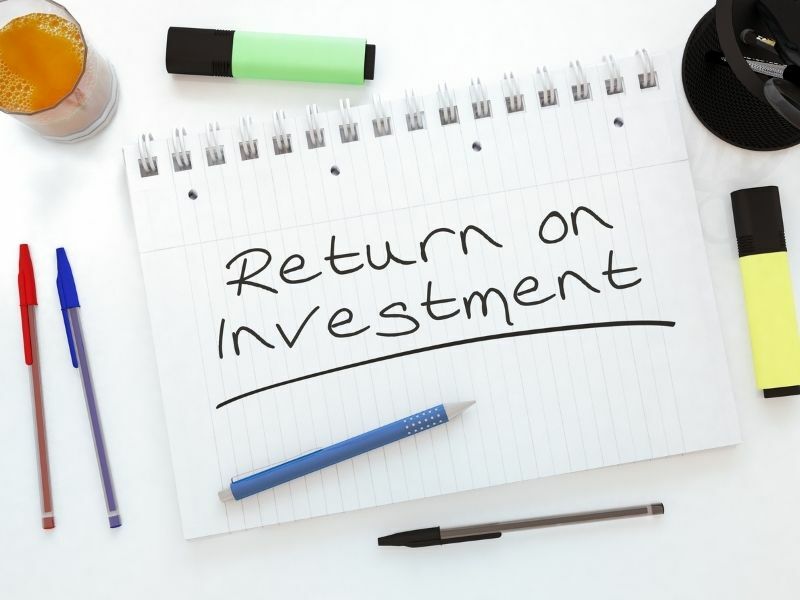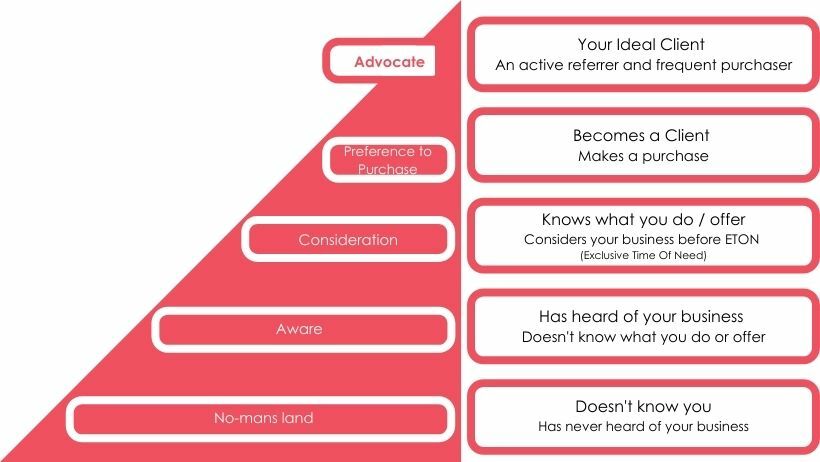Have you ever consider sponsorships as part of your marketing strategy?
Sponsorships are more than handing over money to an organisation and expecting the leads and sales to roll on in!
So where do you start?
Like any marketing activity sponsorship should have a strategy and budget behind it. In other words:
What do you want your sponsorship to achieve?
What your strategy is will usually dictate the types of sponsorships you consider.

Different types of sponsorship
Obviously, what you want your sponsorship to achieve needs to align with your overall business and marketing strategy.
However, in my experience – working predominantly with small and medium businesses – there are two main types of sponsorships. Ie, two reasons why businesses include sponsorship in their marketing strategy.
- Community involvement
- ROI
Community involvement

I’m guessing if you commit to sponsorships based on community involvement then you are not sponsoring for a financial return. You have a higher purpose in mind.
It may be that your Why is to make a difference in your town or city and you know that the organisation/event/person you are sponsoring makes a difference.
It may be to contribute, to give back, to a community that has supported you and/or your family and/or business in some way.
It may be something else entirely. The important difference here is that you are not sponsoring with the goal of a financial gain or a return on your investment.
It may be something else entirely. The important difference here is that you are not sponsoring to achieve a financial gain or a return on your investment.
ROI sponsorships

ROI sponsorships are exactly what they sound like. The reason for committing to the sponsorship is purely to seek a Return On Investment.
Now your ROI might be a direct financial return. It might be an increase in brand awareness. Or it could be to generate leads.
Essentially, you are not taking on this type of sponsorship out of the goodness of your heart!
Now, I’m not saying a Community Involvement sponsorship won’t deliver you a ROI. Chances are it will. It’s just not the end goal or the purpose of that particular sponsorship sponsorship.
Budget Budget Budget

Once you’ve worked out your strategy, then you need to allocate your budget.
Generally speaking, your budget will directly align with the goal of your sponsorship strategy. Most businesses tend to commit a larger budget to the ROI sponsorships. Not always, but it’s usually the case.
One of the important aspects of your sponsorship budget is to make sure you include dollars for, what we call, activation.
Activation is additional activities such as attending event costs (eg travel, accommodation, catering), tailored marketing collateral/merchandise that is developed specifically for the sponsorship, additional advertising, etc etc.
Don’t look at your sponsorship budget as just the amount being asked for the sponsorship. Your activation investment should be included too.
Maximising your sponsorships

- The important thing you need to remember when maximising your sponsorships is:
When considering a sponsorship opportunity WHY would you commit to it? What is your goal?
And, set a budget and stick to it!
Ideal customers
You want to make sure that your sponsorship is going to connect you with your ideal customer (your target market).
This is generally more important with a ROI goal sponsorship. You don’t want to be throwing money at a sponsorship to generate leads and sales (or even increase brand awareness) where your ideal customer isn't present.
Do your research on the organisation, event, community. Are the members, participants, people going to:
a) appreciate your contribution (community involvement)
b) spend with you (ROI)
If the answer is no, then you should reconsider the sponsorship.
If the answer is yes, then it's time to look at what the sponsorship you’re considering offers and does that offering meet your goals.
What’s on offer
One thing I’ve spotted time and time again, is that when you become actively involved with your sponsorship you are much more likely to achieve success (not matter what type of sponsorship it is).
So, by reviewing the sponsorship offer you are able to get a good idea of what you can contribute/participate more actively in to maximise your sponsorship.
For example, if there are a number of events as part of an annual industry sponsorship, does your sponsorship offer tickets to attend those events and build your networks.
Or if the organisation/event/person has a social media presence, can you contribute to their social media or share their posts.
This is also where your activation investment needs to be considered. What are the additional $$ you may need to invest in the sponsorship to maximise the opportunities offered.
Negotiations
Does the sponsorship offer you the ability to customise or negotiate the offer?
If there are aspects of the sponsorship that don’t align with your business can you change them or remove them and reduce the financial investment required.
Exclusivity and first right of refusal
Do you have exclusivity? Dependent on the level of sponsorship you are committing to, exclusivity is often promoted as a sponsorship benefit. And rightly so – it's a great way to maximise your sponsorship.
Exclusivity means you can promote your business, your brand, in a space where your competitors can't. And while I'm all about collaboration over competition this really is an opportunity to demonstrate the value you can offer to your ideal customers (target market) in a meaningful way.
With exclusivity usually comes first right of refusal. In other words the sponsorship can't be offered to anyone else on renewal until you say you don't want it any more. It offers you the benefit of longevity and with that comes recognition of your business and brand. And that helps you move up the brand ramp.

Core Values
Does the sponsorship align with your business core values? If yes, and you commit to the sponsorship, maximise the opportunity by sharing stories, social media, promoting your joint commitment to XYZ.
If the sponsorship doesn't align with your core values, I would counsel strongly against committing to it. People will see the disconnect and it can be very damaging to your brand.
Measure, measure, measure.
As with any marketing strategy you need to measure it to know if it's working.
Sponsorship is no different. In order to maximise your sponsorship, don't wait until the renewal period to do an assessment. Check in regularly, record details and outcomes. See if it's on track to achieve the goals you originally set.
Dependent on what your goals are, you might ask questions like:
- What effect have you had on the sponsorship target market or audience?
- Has your message been heard?
- How many leads have you generated? And are you taking full advantage of them?
- What financial return have you seen?
- Has your sponsorship made a difference within the community? Etc etc.
- Etc, etc…
If you achieve your goals then you have maximised your sponsorship. If you haven’t achieved your sponsorship goals, then you may need to reconsider renewing that particular sponsorship.
At the end of the day sponsorships can be a very effective tool to help you achieve your overall marketing goals. But only if you maximise the opportunities.
Need help reviewing or setting up a sponsorship strategy?
Get in touch. I'm here to help.
Book a complimentary coffee catch up here



